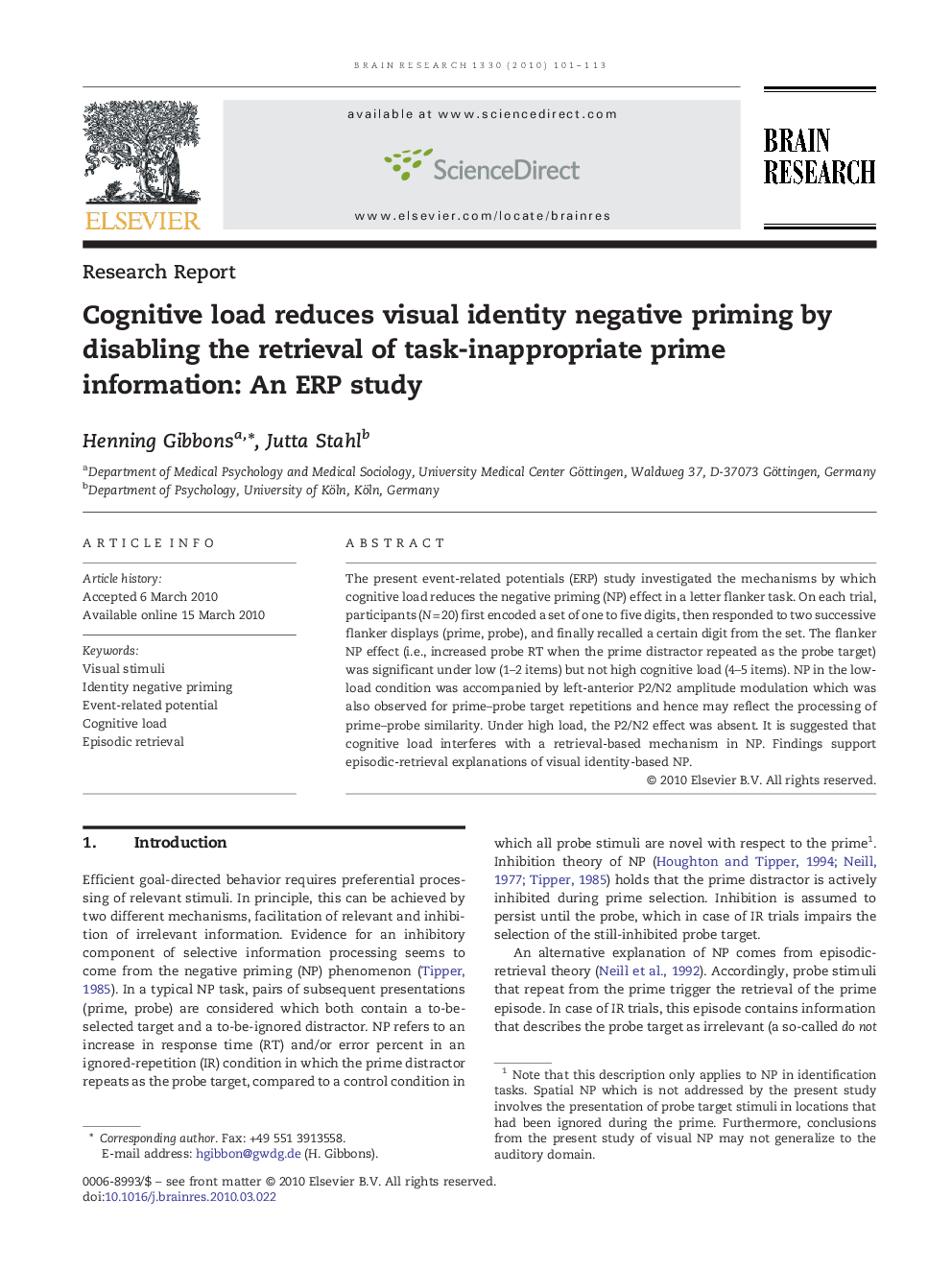| Article ID | Journal | Published Year | Pages | File Type |
|---|---|---|---|---|
| 4326928 | Brain Research | 2010 | 13 Pages |
The present event-related potentials (ERP) study investigated the mechanisms by which cognitive load reduces the negative priming (NP) effect in a letter flanker task. On each trial, participants (N = 20) first encoded a set of one to five digits, then responded to two successive flanker displays (prime, probe), and finally recalled a certain digit from the set. The flanker NP effect (i.e., increased probe RT when the prime distractor repeated as the probe target) was significant under low (1–2 items) but not high cognitive load (4–5 items). NP in the low-load condition was accompanied by left-anterior P2/N2 amplitude modulation which was also observed for prime–probe target repetitions and hence may reflect the processing of prime–probe similarity. Under high load, the P2/N2 effect was absent. It is suggested that cognitive load interferes with a retrieval-based mechanism in NP. Findings support episodic-retrieval explanations of visual identity-based NP.
